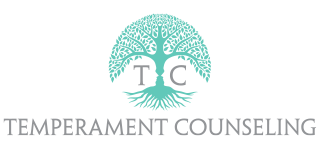Doctorate in Clinical Pastoral Counseling - Colorado Theological Seminary
Licensed Clinical Pastoral Counselor - Advanced Certificate in Marriage and Family Therapy (with the Integration of Temperament Theory and Therapy), National Christian Counselors Association
Certified Temperament Pastoral Counselor, National Christian Counselors Association
Discernment Counseling Certificate, Doherty Relationship Institute
Certified Hypnotherapist, Michael Newton Institute
Doctorate in Applied Developmental Psychology, George Mason University
Fluent in English and Spanish
Angie Willson-Quayle
PhD, LCPC
Clinical Special Interests
I typically work with Couples who are either already married or contemplating tying the knot. However, as is often the case, the two partners do not live in a vacuum. They typically live and work with others and so my work naturally extends and includes Individuals, Families, and Youth.
Temperament Theory and Temperament Counseling are the cornerstones of my practice because they reveal who we really are and what we truly need. As such, I have a clear picture of what I’m working with and this facilitates the healing and recovery process for my clients. This type of Counseling approach is typically very instrumental in helping with the following: Marital/Relationship Discord, Issues with Intimacy/Sex, Communication Breakdown, Loss of Interest in One’s Partner, Overcoming Infidelity, Integration of Cultural and Religious Differences in Child-Rearing, Emotional Fallout from Separation and Divorce, Challenges of Parenting and Teenage Rebellion, the Absent or Neglectful Father and Daughter Relationship as well as Premarital Preparation and Road Mapping, Dating and Relationship Building.
Temperament Counseling also lends itself well to working with Individuals, Families and Youth who are not extensions of the couple dyad, but who are experiencing issues in their inter-relationships and wish to learn about themselves and their family dynamics.
My Philosophy
I am a counsellor, facilitator, referee and purveyor of knowledge about the extent to which our inborn temperament colors and shapes how we see the world and others, and the extent to which our current environments support or hinder our development. I also provide information on whether our deepest needs and wants are being met in ways that are most nurturing to our truest self.
I chose to become a pastoral counselor (as opposed to a regular secular practitioner) because this approach allows my clients to draw on their spirituality and/or religious beliefs (if they are so inclined), in order to gain additional strength. Pastoral counseling also permits me to weave into my therapeutic approach aspects of meditation, mindfulness, breathing, attentional focus, relaxation, centeredness and prayerfulness that complement the healing process. I believe that many clients are now ready to try a holistic approach that looks deeply into the human heart and mind, to find answers.
Despite my being a Clinical Pastoral Counselor, my clients absolutely don’t have to be spiritual or religious to enjoy the benefits of my approach. In fact, I don’t view my clients’ spiritual and/or religious beliefs as a prerequisite for counseling; rather I see them as an extra tool in my therapeutic toolbox.
Availability: Weekday Daytime, Weekday Evening, Weekends

“Your deep personal relationships can only be as good as your relational self-awareness; in other words, the better you know and like yourself, the more you will understand others”.
— Angie Willson-Quayle

